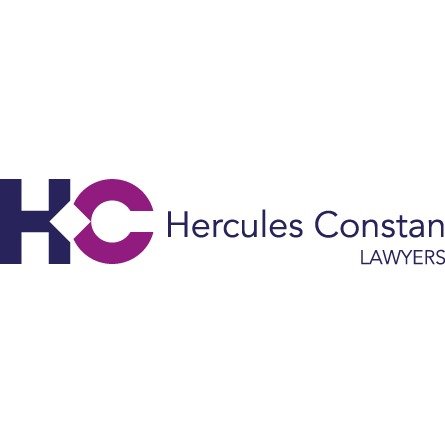Best Housing, Construction & Development Lawyers in Melbourne
Share your needs with us, get contacted by law firms.
Free. Takes 2 min.
Free Guide to Hiring a Real Estate Lawyer
List of the best lawyers in Melbourne, Australia
About Housing, Construction & Development Law in Melbourne, Australia
Housing, Construction & Development Law in Melbourne, Australia encompasses a wide range of legal issues associated with residential and commercial properties, construction projects, and urban development. This area of law deals with the regulation of property use, building standards, construction contracts, disputes between builders and developers, zoning laws, and environmental assessments. With Melbourne’s rapid growth and ongoing urban development, understanding the legal framework is essential for anyone involved in building or managing properties.
Why You May Need a Lawyer
There are several situations where you might require legal help in Housing, Construction & Development. These can include disputes over building contracts, issues with construction project delays, planning and zoning disputes, homeowner warranty claims, non-compliance with building standards, and disputes over property boundaries. A lawyer can also assist in navigating complex regulations, ensuring contract compliance, and representing your interests in negotiations or litigation.
Local Laws Overview
Melbourne's housing and construction landscape is governed by a mix of state and local regulations. Important regulations include the Building Act 1993 and the Planning and Environment Act 1987, which set forth the requirements for building permits, safety standards, and zoning regulations. Local councils also have specific planning schemes that must be considered. The Victorian Civil and Administrative Tribunal (VCAT) plays a critical role in resolving disputes in this sector. Understanding these regulations is key to ensuring compliance and avoiding legal penalties.
Frequently Asked Questions
What are the common zoning laws in Melbourne?
Zoning laws in Melbourne dictate how land in different areas can be used. They are designed to manage urban growth and development. Common zones include residential, commercial, industrial, and rural, each with its own rules regarding what can be built and what activities can be conducted.
How do I resolve a building dispute?
Building disputes can be resolved through mediation, arbitration, or through the courts. It is often advisable to go through the dispute resolution process offered by the Victoria Building Authority (VBA) or to take the matter to VCAT for a more formal resolution.
What is the process for obtaining a building permit?
The building permit process involves submitting detailed plans and specifications to a registered building surveyor, who assesses compliance with building regulations. This permit is essential before any construction starts.
Who is responsible for ensuring compliance with building regulations?
The responsibility typically lies with the builder or developer, but homeowners must also ensure that the contractors they hire are compliant with all legal standards and have the necessary insurance and licenses.
What is the Home Warranty Insurance requirement?
Home Warranty Insurance is mandatory in Victoria for domestic building contracts over $16,000, primarily protecting homeowners if a builder is unable to complete a job or rectify defects (due to insolvency, death, or disappearance).
Can I challenge a Council’s planning decision?
Yes, individuals or entities affected by a planning decision can appeal to VCAT, which assesses the merits of planning disputes and can overturn or modify council decisions.
How are construction delays handled legally?
Construction contracts typically outline procedures for handling delays, including allowable extensions and penalties. Parties often rely on these contract terms or seek legal resolution if disputes arise.
What should I look for in a construction contract?
A construction contract should include clear terms on scope, timelines, payment schedules, dispute resolution processes, and comply with the Domestic Building Contracts Act 1995, ensuring protection for all parties involved.
How can environmental regulations impact my development project?
Environmental regulations require an assessment of the impact a development project might have on the local ecology. Compliance might involve special applications or modifications to the project to minimize environmental impact.
What is 'VCAT', and how does it relate to housing and construction?
VCAT, the Victorian Civil and Administrative Tribunal, is a tribunal body where disputes related to housing and construction are resolved. It offers a less formal setting than the courts and is an accessible way to address legal disputes in this sector.
Additional Resources
For further guidance, you can contact the Victorian Building Authority (VBA), which oversees building industry standards and practices. The Consumer Affairs Victoria (CAV) offers important consumer information, and the Law Institute of Victoria can connect you with a qualified lawyer specializing in Housing, Construction & Development law. Local council offices can also provide details on planning schemes and permits.
Next Steps
If you require legal assistance in Housing, Construction & Development, consider consulting with a specialized lawyer who can provide advice tailored to your specific situation. Begin by collecting all relevant documents, such as contracts, correspondence, and incident records. You may wish to contact the Law Institute of Victoria for recommendations on experienced legal professionals in this field. Engaging a lawyer early can help prevent legal complications and ensure your interests are adequately protected.
Lawzana helps you find the best lawyers and law firms in Melbourne through a curated and pre-screened list of qualified legal professionals. Our platform offers rankings and detailed profiles of attorneys and law firms, allowing you to compare based on practice areas, including Housing, Construction & Development, experience, and client feedback.
Each profile includes a description of the firm's areas of practice, client reviews, team members and partners, year of establishment, spoken languages, office locations, contact information, social media presence, and any published articles or resources. Most firms on our platform speak English and are experienced in both local and international legal matters.
Get a quote from top-rated law firms in Melbourne, Australia — quickly, securely, and without unnecessary hassle.
Disclaimer:
The information provided on this page is for general informational purposes only and does not constitute legal advice. While we strive to ensure the accuracy and relevance of the content, legal information may change over time, and interpretations of the law can vary. You should always consult with a qualified legal professional for advice specific to your situation.
We disclaim all liability for actions taken or not taken based on the content of this page. If you believe any information is incorrect or outdated, please contact us, and we will review and update it where appropriate.
















